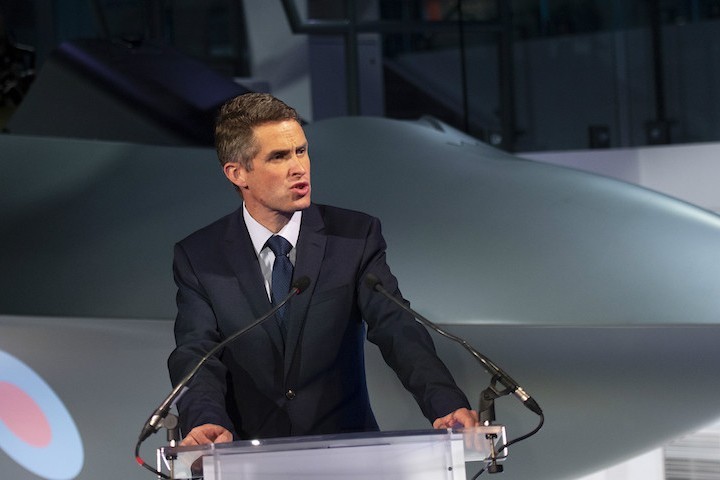The British defence industry creates thousands of jobs in the advanced manufacturing sector, generating a UK sovereign capability that is the best in the world.
Lancashire is the UK’s number one region for aerospace employment, with around 17,000 people – including the workforce at BAE Systems' Samlesbury and Warton sites – directly employed in the sector.The government's new strategy outlines the way in which the UK will acquire future combat air capabilities to maximise the overall value the UK derives from the sector. The framework will balance military capability, international influence, and economic and prosperity benefit along with the overall cost.
It reinforces the commitment in the 2015 Strategic Defence and Security Review to deliver the Future Combat Air System Technology Initiative (FCAS TI).Gavin Williamson said: "We have been a world leader in the combat air sector for a century, with an enviable array of skills and technology, and this strategy makes clear that we are determined to make sure it stays that way. It shows our allies that we are open to working together to protect the skies in an increasingly threatening future - and this concept model is just a glimpse into what the future could look like.
"Today’s news leaves industry, our military, the country, and our allies in no doubt that the UK will be flying high in the combat air sector as we move into the next generation."A new concept aircraft has been put together by British firms including BAE Systems, Leonardo, MBDA and Rolls-Royce, which have joined together with the RAF Rapid Capabilities Office to form ‘Team Tempest’ to pursue the opportunity.
The MOD will now set up a dedicated team to deliver the combat air acquisition programme. They will deliver a business case by the end of the year, and have initial conclusions on international partners by next summer – with engagement with potential partners beginning immediately.Early decisions around how to acquire the capability will be confirmed by the end of 2020, before final investment decisions are made by 2025. The aim is then for a next generation platform to have operational capability by 2035.
Investment in combat air technology, combined with the strengths of UK industry, has resulted in the UK being the only Tier 1 partner with the US on the F-35 Lightning II programme, with British industry delivering 15 per cent by value of every F-35 built.This had a direct economic impact on Lancashire, with BAE Systems machining parts for the craft and offering training services for pilots. Charles Woodburn, chief executive of BAE Systems, said: The UK’s combat air capability, built by generations of committed and highly skilled people through a century long partnership between the RAF and industry, is admired the world over. The UK government’s Combat Air Strategy is a powerful statement of intent to invest in next generation combat air systems."






















